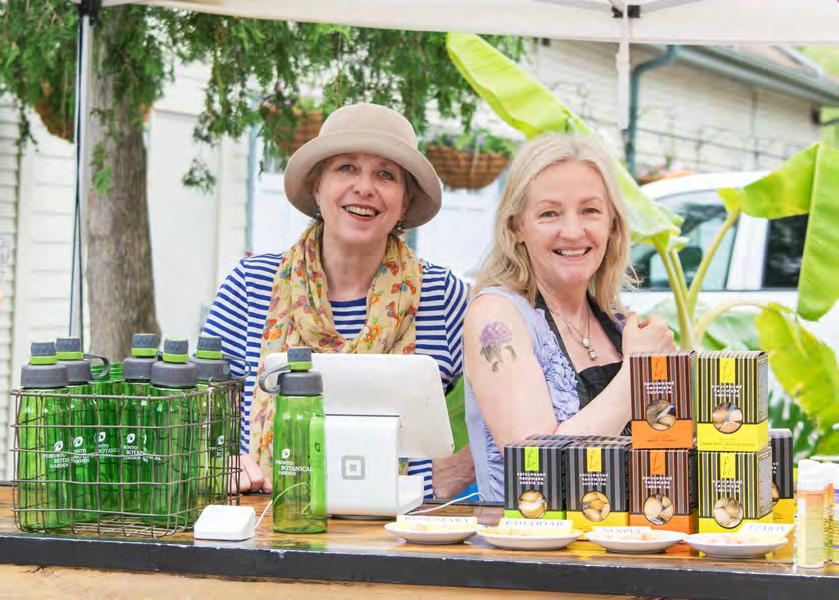Houseplant Profile With the right care, they give nearly constant bloom. Understanding their needs is fairly intuitive. Rekindle your love for these old-fashioned favourites with the following tips. Container: African violet roots do
well in small containers. Ideally, the diameter of the pot should be a third the size of the plant’s diameter, measured from one leaf tip across to the opposite leaf tip. A drainage hole and saucer are necessary. For more technical advice on every aspect, including measurement guides and how to set the roots into the pot, visit Baby Violets, a specialist blogger at babyviolets.com.
Soil: African violets do best in a light, loose, slightly acidic mix that allows air to reach the roots. Leave the soil for six months, then simply replace with African violet or indoor potting mix. Both compositions are perfect for them. Light: Place your African violet
Grandma was right! These tiny charmers call out for love and affection By Georgie Kennedy
I
’M GUESSING you remember African violets (Saintpaulia ionantha) growing in your grandparents’ living room. Don’t you wish you could ask what made them bloom so prolifically? Could it have been the intimate and caring relationship between gardener and plant? The fuzzy leaves in rosette-shaped whorls have always appealed to anyone with a tactile nature, and the adorable flowers of
these tiny charmers practically call out for love and attention. What are the reasons for their enduring popularity? African violets are like furry puppies, except they stay strictly confined to their containers and must never go gallivanting outdoors in the summer. They are non-toxic, thus compatible with all babies, both fur and human. They’re inexpensive and come in a wide range of variegation and flower colour.
TORONTOBOTANICALGARDEN.CA
38
Water: Remember the roots require aeration. Water only when the soil feels dry and avoid splashing those fuzzy leaves. They’ll rot if dampness settles on them. A long-mouthed watering can will allow you to direct the water properly. Let any excess escape to prevent root decay. Clay pellets/pebbles or a self-watering system can provide humidity to help
SPRING 2021
PHOTOS: GEORGIE KENNEDY
AFRICAN VIOLETS
where it gets plenty of indirect light. Its sensitive leaves will burn if exposed to strong, bright sun beaming all day long into a south facing window. If you notice the flower stems becoming leggy, give it more sky exposure but keep it from touching cold glass. Some growers rotate a quarter turn weekly to allow equal light. For a clear, scientific method of calculating the right spot for every plant, I recommend Darryl Cheng’s blog, House Plant Journal at www.houseplantjournal.com









